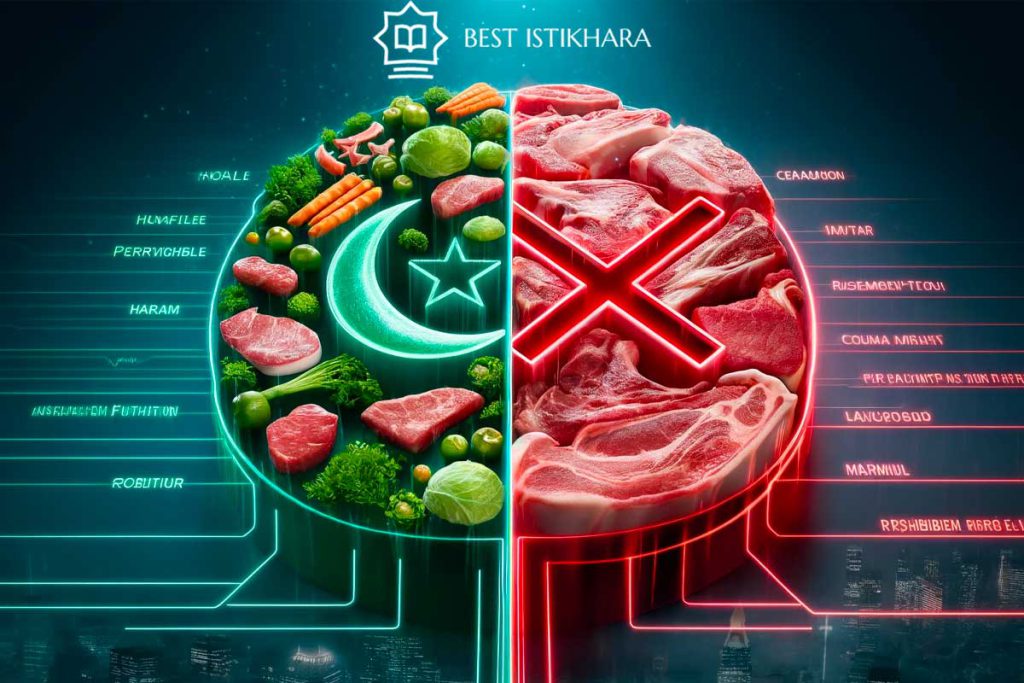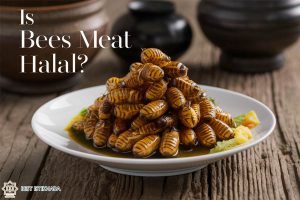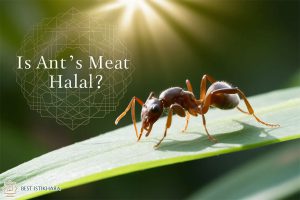Halal vs. Haram Meats in Islam

In the Islamic faith, adhering to dietary laws is a profound expression of faith and obedience to Allah. Central to these dietary laws is the distinction between halal (lawful) and haram (forbidden) foods, particularly meats. This division not only dictates what Muslims are allowed to eat but also symbolizes a deeper spiritual discipline, reinforcing a moral and ethical way of living. Understanding why Muslims must avoid haram meat and the importance of this topic is crucial, as it directly relates to purity, health, and spiritual well-being. For a broader understanding of halal and haram in Islam, visit our detailed page.
The Concept of Haram and Halal in Islam
Halal and haram are quintessential concepts in Islam, governing not just dietary laws but all aspects of life. Halal, meaning permissible, and haram, meaning forbidden, are categories defined by the Qur’an and Hadith. These classifications ensure that Muslims maintain a clean, ethical, and healthy lifestyle. Halal meats are not only about what is consumed but also how it is prepared, emphasizing humane slaughtering methods and invoking Allah’s name as a blessing over the food. Conversely, haram meats are forbidden due to considerations of health, morality, and the respect for life as created by Allah.
Halal & Haram: A Closer Look
Halal:
In Arabic, Halal translates to “lawful” or “permitted,” guiding Muslims toward dietary choices sanctioned under Islamic law. This framework encompasses not only the type of foods eaten but also the manner of their preparation and consumption, embedding purity at the heart of dietary practices.
Haram:
Conversely, Haram, meaning “forbidden” or “prohibited,” delineates what is unequivocally barred in Islam, spanning beyond food to include various acts and behaviors. In dietary terms, this encompasses the consumption of pork, alcohol, carnivores, and any meat not ritually slaughtered.
Detection and Understanding of Halal and Haram Meats
Identifying halal and haram meats involves understanding Islamic dietary laws and guidelines. This includes the source of the meat, the method of slaughter, and the intention behind it. The slaughtering process, known as Zabiha, requires a Muslim to perform the slaughter by cutting through the jugular veins and windpipe, ensuring the animal’s swift and humane death while reciting a prayer dedicating the act to Allah. This method purifies the meat, making it permissible (halal) for consumption. Technological advancements and increased global awareness have made identifying and obtaining halal meats easier, yet the faithful must remain vigilant against inadvertently consuming haram.
Best Istikhara’s Latest Articles About Halal & Haram
Comprehensive List of Halal and Haram Animal Meats
When discussing permissible and forbidden meats, it’s essential to categorize them for clarity. Here is a detailed list:
Halal Animals:
- Cattle (Cows and Bulls): Halal, provided they are slaughtered according to Islamic law.
- Sheep: Halal when slaughtered according to Zabiha.
- Goats: Permissible, following proper Islamic slaughtering procedures.
- Camels: Halal, with specific slaughtering rituals.
- Deer: Considered halal, following proper slaughtering.
- Chickens: Halal when slaughtered according to Islamic guidelines.
- Ducks: Permissible, with correct Islamic slaughtering.
- Turkeys: Halal, if slaughtered in the name of Allah.
- Fish (generally all fish with scales): Universally accepted as halal.
Haram Animals:
- Pigs (and all pork products): Strictly haram due to impurity.
- Dogs: Forbidden in Islam to consume.
- Snakes: Haram, as predatory animals.
- Monkeys: Forbidden due to their close relation to humans and ethical considerations.
- Carnivorous animals with fangs (lions, tigers, wolves, etc.): Haram because of their predatory nature.
- Birds of prey with talons (eagles, hawks, falcons, etc.): Forbidden, as they consume live animals.
- Insects (except for locusts): Generally haram, with some exceptions.
- Reptiles: Forbidden in Islam.
- Amphibians (frogs, etc.): Haram, due to their life cycle and habitat.
- Animals that were dead before slaughtering: Not permissible, as the proper Islamic slaughtering method was not followed.
- Animals not slaughtered in the name of Allah: Eating such meat is haram, as the name of Allah must be invoked at the time of slaughtering.
Halal vs. Kosher
The dietary frameworks of Halal and Kosher stand as pillars for their respective communities, guiding the faithful in Islam and Judaism through the intricacies of permissible consumption. While they share a common thread in their quest for dietary purity, the paths they follow reveal both intersection and divergence.
Shared Principles:
- Ethical Slaughter: Both traditions underscore the necessity for animals to be alive and healthy prior to slaughter, which must be performed by an individual well-versed in religious rites. The act of slaughtering involves a precise, compassionate cut to ensure swift dispatch.
- Blood Prohibition: A unanimous stance exists against the ingestion of blood, mandating a complete drainage from the carcass to purify the meat for consumption.
- Selective Consumption: The unanimous exclusion of pork from both diets highlights a shared caution, though Halal extends its permissiveness to encompass all seafood, diverging from Kosher’s restrictions against shellfish.
Points of Departure:
- Dairy and Meat Segregation: The Kosher diet strictly segregates dairy from meat, a regulation absent in Halal practice, which imposes no such dietary segregation.
- Alcohol and Fermentation: Unlike Halal’s general prohibition of intoxicants, Kosher rules accommodate alcohol and fermented products, provided they are produced under stringent Kosher supervision.
- Blessings and Ritual Slaughter: While both require divine invocation during slaughter, Kosher necessitates a specific blessing per animal, contrasting with Halal’s allowance for a singular invocation to suffice for multiple slaughters.
- Certification Processes: Despite both diets demanding certification, the overseeing authorities and their criteria vary significantly, reflecting each tradition’s unique dietary ethos.
Conclusion
The distinction between halal and haram meat is a fundamental aspect of Islamic dietary laws, reflecting a Muslim’s commitment to living a life in accordance with the teachings of Islam. It encompasses not only a dietary choice but a spiritual and ethical journey towards purity, health, and respect for Allah’s creation. By adhering to these laws, Muslims ensure that their consumption practices align with their faith, fostering a sense of community and belonging within the global Ummah. The pursuit of halal is not just about following rules; it’s about nurturing a holistic, spiritually fulfilling lifestyle.












